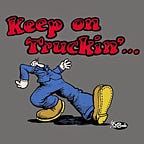Cruelty in Our Politics and Prisons
A Case in Point: Ketanji Brown Jackson
A Brain Science Explanation of Cruelty:
Simon-Baron Cohen says that we are born with an “empathy brain circuit” that makes us capable of empathy toward others on a scale of zero to six, and in his book, The Science of Evil, he references instruments that place you on this scale. Cohen is a psychologist and deals with populations who on the one hand are either psychopaths or have borderline personality disorders, and on the other hand are described as being autistic or with Asperger Syndrome. He says empathy can be delineated as either cognitive” empathy (knowing how a person should or will feel) or “affective” empathy (feeling the emotions of another person). Cohen maintains psychopaths have cognitive empathy, but not affective empathy, whereas autistic people have both types impaired and those with Asperger only the cognitive is impaired.
The brain science explanation is supported by a Philosophical Explanation:
“The seeds of human cruelty are likely in nature. It probably stems from some animal behavior and mainly predators. In both cases, the psychic organization seems the same. Aggressive instinct coupled with a lack of empathy…a narcissistic sum overload.”
Based on the above explanations of evil, David Livingstone Smith thinks that cruelty is exerted when one person fails to see another person as fully human. In Less Than Human: Why We Demean, Enslave, and Exterminate Others, Smith says that when we dehumanize others, we lose our inhibitions against inflicting pain and humiliation and even murder, thus allowing us to be cruel. In this view, cruelty is always seen as something wrong, as a human vice, an expression of sadism that needs to be socially controlled if not eradicated. Cruelty is judged to be not ‘normal”.
But what if cruelty is normal:
What if we are all capable of cruelty depending our social environment and whether or not we are incentivized (encouraged and admired) to be cruel. Recent thought about human cruelty see it as a response to moral imperatives and social conditions. People are cruel when they think it is morally justified (killing abortion doctors and stone throwers), or when they see others as a treat to their social status and way of life (attacking Jews, Hispanics, Blacks, migrants). In other words, people are moved to cruelty when they feel the need to regulate social relationships and think imposing cruelty is necessary, condoned, and gratifying. In this view of cruelty, there is no need to dehumanize others. In fact, it is because the others are seen as fully morally functioning humans that they are perceived as a threat that must be neutralized.
Anyone who has participated in sports or other extreme competitions short of death knows there is great pleasure in dominating others. Competitive domination is a sanctioned form of humiliation and an otherwise common tactic of dominance. We can only humiliate people, not animals, so there is no need to first dehumanize a person in order to experience the pleasures of exerting cruelty. Humiliation is basic cruelty; the entry level act that may lead to violence if it is not challenged but allowed to be condoned, legitimated, and admired. Humiliation brings the attacker joy and self-verification, and when done as part of a group effort, it reinforces a sense of belonging. That is why President Trump always fist labels an opponent with an insulting title (little, lying, Pocahontas) before he escalates his attacks. It is why Republicans insult and humiliate Ketanji Brown Jackson. They don’t see her as less than human, they see her as a threat to their political power roles, to their social status and way of life.
Indifference to Suffering or Pleasure Inflicting Suffering
So, what are the criteria for cruelty and how do prison conditions support these criteria?
One of the criteria would have to be the presence of pain. I think there is no doubt that cruelty involves the infliction of either physical or psychological pain. Going to prison is in itself painful…legally sanctioned pain…so to have cruelty in prison we must see an excess of pain beyond mere incarceration.
Cruelty requires a victim and a perpetrator, even when the perpetrator is institutionalized, but for cruelty to be possible there must be a power differential between the roles, with the perpetrator holding more power. The staff-prisoner role division is the most intransient social barrier in a prison, as is the Senator-Supplicant role in national politics. Our roles are more than just scripts that we turn on and off at will, they often define who we are.
There are a thousand and one ways for guard or warden to strengthen the role barrier by making the life of a prisoner painful, including everything from subjecting him to intrusive strip searches to actual beatings. Prisoner mail can be “lost”, cells can be searched and property left a shamble, bogus disciplinary misconducts written so that early release time is threatened, vital health care withheld, transferring the prisoner to a facility far from family to disrupt visitation, planting contraband in prisoner cells. Prison cruelty is limited only by your imagination.
Cruelty always involves a motivational paradox. We are fascinated by cruelty and also horrified. Our reaction to cruelty can be indifference, or it can be delight and pleasure, but it always involves power and politics.
